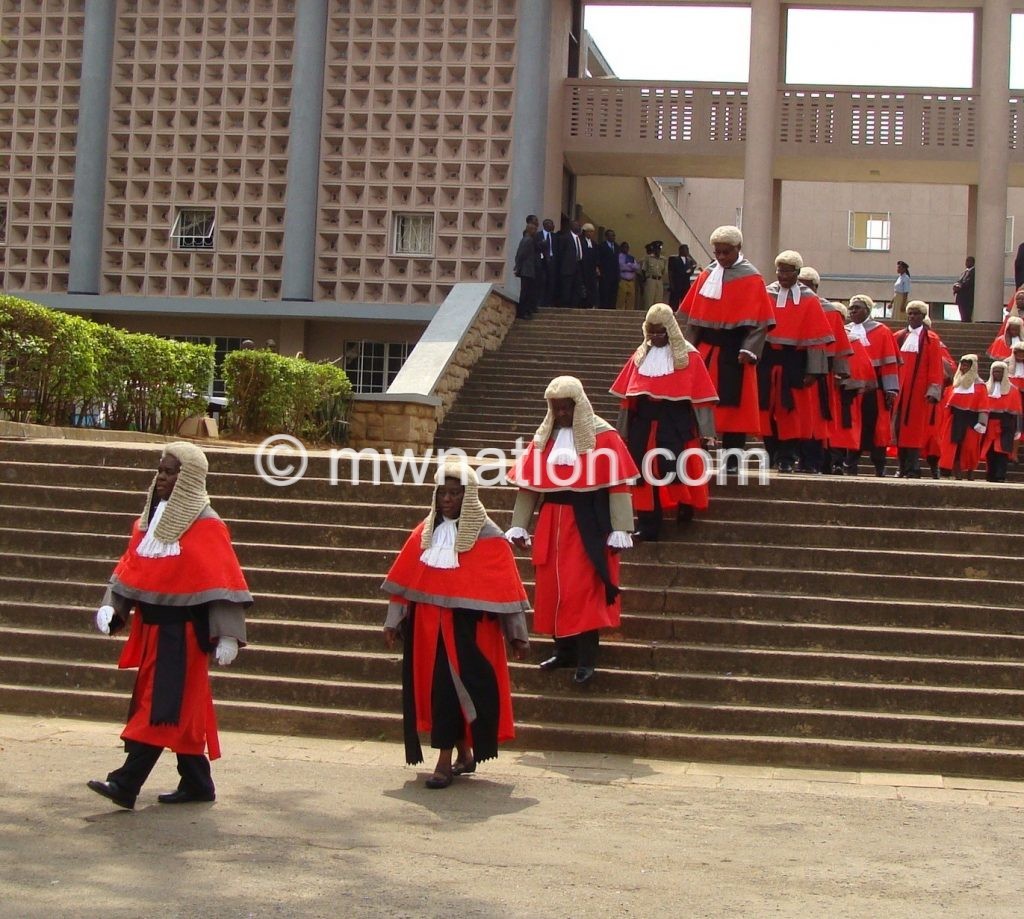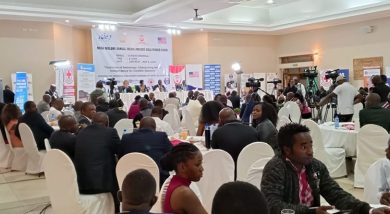Courts delay in sentencing
The maxim ‘Justice delayed is justice denied’ is very true to over 300 litigants in the country, some of whose cases were concluded over 20 years ago but they are yet to get justice on their cases, we can reveal.
A list we have seen of outstanding cases awaiting judgments, shows that one case has been in court since 1993, it was concluded in 1997 but a majority of the 300 litigants whose disputes were concluded between 1997 and 2018 are still waiting for the courts to deliver justice.

The cases awaiting judgments are at the Supreme Court of Appeal, High Court (criminal and commercial divisions), Industrial Relations Court (IRC) and Magistrates’ Court.
While the list seen by Weekend Nation had just over 300 cases whose judgements have not been handed out, our sources at the High Court Registry claimed the number of outstanding judgments could be in thousands because most longstanding cases, especially at the IRC and the magistrates’ courts are rarely followed up due to parties’ lack of legal presentation.
From the list, as of December 2019, one single senior judge of the High Court had about 20 judgments to deliver—some of them dating to 2001.
One such case was filed before the court in 1993 under civil cause (CC) number 395 involving former member of Parliament (MP) Muhammad Kulesi versus Royal Insurance Company. This means the case has taken about 27 years without judgment.
Another case was filed in 2003 under civil cause number 3072 of 2003 involving Cane Products Limited belonging to another former Cabinet minister and parliamentarian Rolf Patel and others against Press Corporation Limited (PCL).
Asked why it takes so long to deliver judgements, registrar of the High Court and Supreme Court of Appeal Agnes Patemba asked for more time.
But Malawi Law Society (MLS) bemoaned the tendency, saying any inordinate delay in delivery of judgments impacts on justice delivery and negatively affects litigants.
As such, MLS honorary secretary Martha Kaukonde said, the professional grouping for lawyers engages Judiciary from time to time to ensure cases with long outstanding judgments are cleared.
Kaukonde suggested as a solution to the problem, continued cooperation between Judiciary and all other stakeholders could be a good starting point in addition to other solutions the Judiciary already has.
Kaukonde added that each year, MLS invites its members to provide details of their cases pending judgments and in turn, it either communicates the same to a particular judicial officer or the Chief Justice for necessary action.
On its part, Centre for Human Rights, Education, Advice and Advocacy (Chreaa), which primarily works with the courts and prisons, expressed worry, describing the development as “greatly worrisome”.
Chreaa litigation officer Ruth Kaima said the court’s failure to deliver timely legal redress to litigants was effectively the same as denying remedies to the injured parties.
She further argued that any delay in delivering judgment was a gross human rights violation that must not be tolerated, saying it was high time Judiciary put in place disciplinary code to bring to book judges who delay to deliver justice.
According to Kaima, this is in line with the African Charter on Human and Peoples’ Rights, which states that every person shall be accorded the right to fair trial within a reasonable period of time.
But, just like MLS, Kaima said Chreaa had been engaging several stakeholders, including the Judiciary, to consider speedy judgements on overstayed cases.
“We have also been engaging judges that handle the cases through discussions with judges’ president and registrars on what exactly delays delivery of judgements,” explained Kaima.
During the Judiciary’s 2017 Sherry Party, tired with the delays, former MLS president John Suzi-Banda wore a brave face by challenging the judges to stop creating excuses for delays in judgements’ delivery, arguing that the practice was a threat to the long-term legitimacy and efficacy of the institution.
Chief Justice Andrew Nyirenda supported Banda’s sentiments during a two-day judges’ conference in Mangochi last year when he warned the judges that they risked discipline for failing to deliver judgments on outstanding cases on time.
Over the years, court users have complained of lengthy periods the courts take to have their matters resolved due to various factors such as procedures.





